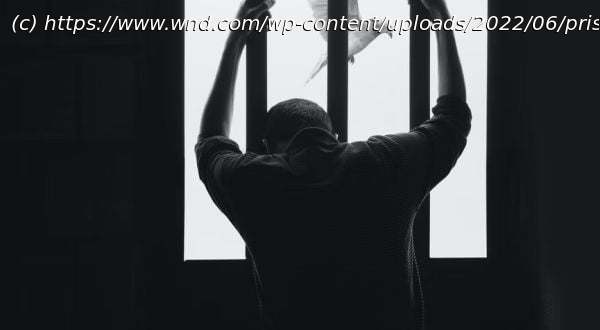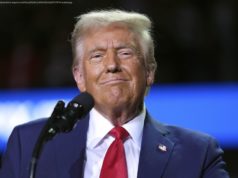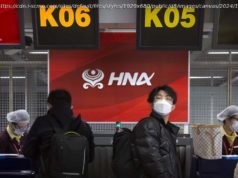Array
[Editor’s note: This story originally was published by Real Clear Wire.]
Dmitri Bodyu, a Ukrainian American pastor, is a three-time religious refugee who last year added “Russian prisoner” to his list of life-or-death challenges. As a teenager in 1989, Bodyu and his family fled religious persecution in the Soviet Union and moved to Texas where they were given legal refugee status and eventually became U.S. citizens, free to worship as they pleased. In the mid-2000s, he and his wife moved to Ukraine and founded a network of thriving evangelical Christians churches there.
While pastoring a church in Crimea in 2014, he was given 10 days to pack up and leave amid Russia’s invasion and annexation of the strategic port-filled peninsula. The couple and their children moved inland to the Ukrainian city of Melitopol and rebuilt their churches and ministry, only to have history repeat itself last year, this time with a far more brutal chain of events.
After the Russian invasion of Ukraine last February, Bodyu started sheltering some four dozen refugees at his church. That is dangerous work. Human rights experts say Russian soldiers have targeted pastors and churches first when taking over territory in Eastern Ukraine. In Russia, most Christians belong to the Russian Orthodox Church, and the church leadership, based in Moscow, views the breakaway Orthodox Church of Ukraine as illegitimate – and evangelical Christians like Bodyu and members of his Word of Life Church as apostates.
After rockets started hitting the city of Melitopol in early March, the U.S. embassy called Bodyu and let him know he could leave and seek legal refuge in the United States.
WND is now on Trump’s Truth Social! Follow us @WNDNews
“But I said that we’re not going to leave the church – we cannot leave the church and go,” he said. “So, I stayed, and my family stayed with me, and we worked the first few weeks when the war started in the city because it was like an Armageddon.”
On March 19, 2022, at 6:30 in the morning, a group of Russian soldiers ransacked their home and churches and captured Bodyu, put a black bag over his head and took him to jail where they alternately threatened to kill him and tried to enlist him into the Russian army.
Despite the bleak circumstances, Bodyu and his family prayed for his release, and after a number of days the soldiers inexplicably released him on one of their commanders’ orders. Still, the soldiers continued to keep his house under surveillance, so the family fled to Poland where they continue to assist church members and Ukrainian refugees.
Other fellow Christian ministers, priests, and their followers weren’t as fortunate, with reports of many being tortured and killed by their Russian captors.
“In occupied territory, we still have Christians there, and it’s very tough to be an evangelical Christian in occupied territory because they are hunting all the ministers and they took our building [for a military base],” Bodyu said while speaking on a Tuesday panel at the International Religious Freedom Summit, a meeting of lawmakers and human rights advocates in Washington, D.C., this week.
Bodyu’s harrowing experience was just one of countless personal accounts of religious and ethnic persecution spotlighted this week at the annual IRF summit. The two-day gathering, which has taken place annually for the last three years, was organized by Sam Brownback, a former Kansas governor who served as President Trump’s ambassador at large for religious freedom, and Katrina Lantos Swett, the daughter of the late Democratic Rep. Tom Lantos, the only Holocaust survivor to serve in Congress and a longtime champion of human rights.
Religious freedom is under a growing threat by China, Russia, and other totalitarian regimes, activities officials and lawmakers at the summit warned as they worked to confront and expose religious persecution around the globe.
Rashan Abbas, a prominent Uyghur activist, urged more action to stop the Chinese government’s genocide against her people, a Muslim ethnic minority in northwest China. In 2021, President Biden formally declared China’s treatment of the Uyghur people as genocide, responsible for attempting to decimate the population through mass detention and forced sterilization.
A lifetime pro-democracy activist, Abbas left the Xinjiang Uyghur Autonomous Region in China and came to the United States to study at Washington State University in 1989. She continued her human rights advocacy and became a broadcaster for Radio Free Asia’s Uyghur Service and later testified before Congress about Beijing’s Uyghur forced labor camps. After she appeared on a panel in 2018 at the conservative Hudson Institute, Abbas’s sister and aunt, who were still living in Xinjiang, disappeared from their homes. Since their disappearances, the Chinese government has confirmed that her sister, Dr. Gulshan Abbas, is being held in a prison inside China on alleged terrorism charges. Less information is known about Abbas’ aunt.
Abbas urged all Americans not to buy any goods marked “made in China” because it’s so difficult to determine if any of them were made by Uyghurs and then transferred to other parts of China for export.
“It hurts me to see people buying these things,” she told RealClearPolitics.






